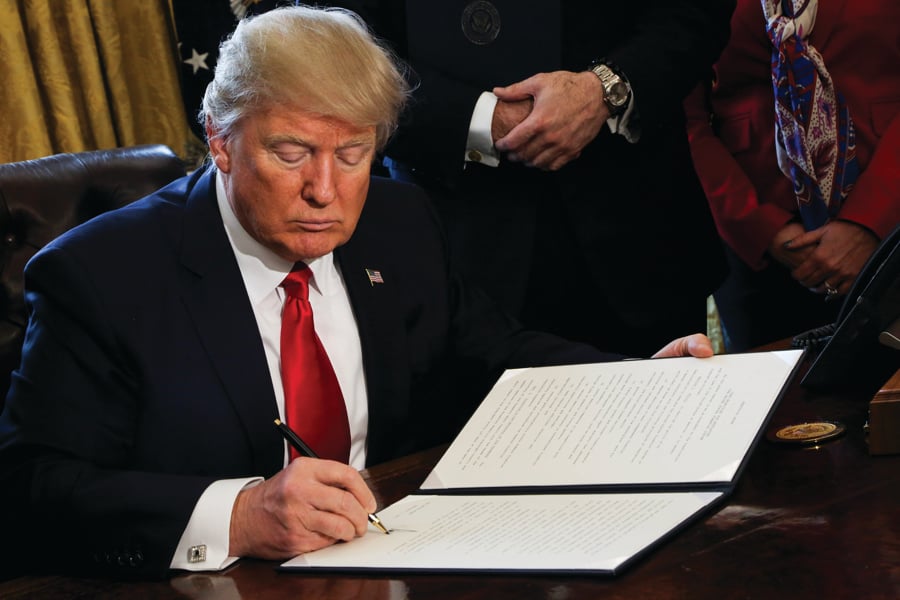A new regulatory requirement could slow down the Securities and Exchange Commission's investment advice reform proposal and crimp the agency's ability to issue guidance on other rules.
Last week, the Trump administration's Office of Management and Budget
issued a memo establishing guidelines for agencies to comply with the
Congressional Review Act when promulgating regulations. The memo applies to both executive branch and independent agencies, such as the SEC.
The OMB memo also would subject SEC guidance and potentially no-action letters to regulatory review as well. The SEC often relies on guidance to clarify how advisers and brokers should comply with often complex rules, such as
custody of client assets.
Under the process outlined in the memo, agencies would have to submit upcoming rules to the Office of Information and Regulatory Affairs at least 30 days before they are publicly released so that the office can determine whether they will have an economic impact of $100 million or more. A regulation is deemed major if it meets that threshold.
Under the Congressional Review Act, Congress can kill major rules and prevent an agency from issuing a substantially similar new regulation unless it's authorized by a law passed after the rejection of the initial rule.
The centerpiece of the SEC's proposal, so-called
Regulation Best Interest that sets a new standard for brokers, likely would be deemed a major rule. Subjecting it to the OMB process could at least delay the final regulation, which most observers are expecting to be
released this summer.
"The SEC is going to have to build in some time to send this to OIRA to comply with the memo," said Amit Narang, a regulatory policy advocate at Public Citizen, a watchdog group. "I can't tell you whether it's a high hurdle or check-the-box. The point of this memo is to create new steps."
A senior administration official, who spoke on condition of anonymity, said it would be business as usual for the SEC.
"The SEC's rules are currently submitted to OMB for major determination under the CRA," the official wrote in an email. "That was the case before the issuance of this memo and after the issuance of this memo."
The SEC declined to comment.
The OMB memo shouldn't lengthen the Regulation Best Interest timeline, according to Duane Thompson, senior policy analyst at Fi360, a fiduciary education, training and technology firm.
"It's hard to imagine, with most of the financial industry rooting for the rule that OMB would set up a road block, but you never know," Mr. Thompson said.
What the OMB memo is likely to do, however, is put more focus on the economic analysis attached to the SEC advice rule.
In a
comment letter earlier this year, several former SEC chief economists said the cost-benefit calculation was weak. Last week, SEC Chairman Jay Clayton told reporters on the sidelines of a Practising Law Institute conference in Washington he was confident the regulatory impact analysis would be pass muster.
"If the SEC has done what it should do under the law, the OIRA review is no obstacle at all" to Reg BI, said Tom Quaadman, executive vice president and head of the U.S. Chamber of Commerce Center for Capital Markets Competitiveness. "The OIRA review helps to ensure the SEC has done its work correctly."
Mr. Quaadman said the OMB is trying to ensure that agencies don't regulate through guidance, which is not legally binding.
"If guidance takes the form of regulation that's a way to circumvent," rulemaking procedures, he said.
Mr. Thompson foresees a potentially chilling effect on the SEC.
"It's going to make the SEC think harder about any guidance before issuing it," he said.
Having the OMB step in "could lead to logjams" in issuing guidance, Mr. Narang said.
If the OMB doesn't approve the guidance, that could crimp the agency's latitude, he said.
"There's no override function for the commissioners," he said. "It's fundamentally undermining the independence of these agencies from the White House."







